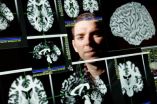(Press-News.org) People in their 80s are often prescribed drugs to ward off a stroke when the risk of a stroke is not that high and the drugs have other side effects, finds a perspective published online in Evidence Based Medicine.
People in this age group are being "over-treated," and doctors need to actively rethink their priorities and beliefs about stroke prevention, argues Dr Kit Byatt of the Department of Geriatric Medicine, The County Hospital in Hereford, UK.
Statins and antihypertensive drugs were the most commonly prescribed cardiovascular drugs in the UK in 2006. And they are widely prescribed to patients in their 80s to ward off stroke.
This is despite the fact that the research shows that, by this age, high blood pressure is not a key contributory risk factor, and high cholesterol has little effect on stroke risk, overall, says Dr Byatt.
He points out that the largest trials of antihypertensive therapy and statins for people in this age group have shown only a marginal reduction in stroke and very modest reductions in other cardiovascular events.
Older patients have diverse views on the relative importance of stroke and death as end points, which differ from clinicians' beliefs, he argues.
The evidence suggests that statins and antihypertensive drugs are greatly over-prescribed in the healthy elderly and are mostly irrelevant in the frail elderly.
Most older patients would probably reject the modest potential benefit conferred by these medicines, in favour of taking fewer drugs every day and not having to put up with their possible side-effects, he suggests.
"The data strongly suggest that we are over-treating many healthy patients aged 80+ regarding stroke prevention," he concludes.
And he questions whether these drugs should ever be used in frail older patients with several underlying conditions
"Should we ever use these medications in frail older patients with multi-morbidity? We need actively to rethink our priorities and beliefs about stroke prevention, actively informing and involving the views of the key person, the patient," he insists.
INFORMATION:
[Overenthusiastic stroke risk factor modification in the over-80s: Are we being disingenuous to ourselves, and to our oldest patients? Online First doi:10.1136/eb-2013-101646]
Over 80s often over-treated for stroke prevention
Doctors need to rethink common prescribing patterns in this age group
2014-02-27
ELSE PRESS RELEASES FROM THIS DATE:
Mental health of most UK troops serving in Afghanistan and Iraq is 'resilient'
2014-02-27
Despite prolonged combat missions to Iraq and Afghanistan, there has been no overall increase in mental health problems among UK soldiers, finds a review of the available evidence, published online in the Journal of the Royal Army Medical Corps.
But certain groups of soldiers do seem to be more vulnerable to mental ill health on their return home, while alcohol problems continue to give cause for concern among regulars, say the researchers from King's College London.
They retrieved published research looking at the psychological impact of deployment to Iraq and Afghanistan ...
Passive smoking linked to increased miscarriage, stillbirth, and ectopic pregnancy risk
2014-02-27
Passive smoking is linked to a significantly increased risk of miscarriage, stillbirth and ectopic pregnancy, finds a large observational study, published online in Tobacco Control.
The risk appears to be cumulative, with risk heightened in parallel with the length of time exposed to second hand smoke, the findings indicate.
It is well known that smoking during pregnancy significantly increases the risks of miscarriage and birth complications. What is less clear is whether passive smoking exerts similar effects, and if there are particularly critical periods of exposure ...
Spotted seal study reveals sensitive hearing in air and water
2014-02-27
Two spotted seals orphaned as pups in the Arctic are now thriving at UC Santa Cruz's Long Marine Laboratory, giving scientists a rare opportunity to learn about how these seals perceive their environment. In a comprehensive study of the hearing abilities of spotted seals, UCSC researchers found that the seals have remarkably sensitive hearing in both air and water.
The findings, published February 26 in the Journal of Experimental Biology, are important for understanding how spotted seals might be affected by noise from human activities in the rapidly changing Arctic ...
Secondhand smoke exposure linked to adverse pregnancy outcomes
2014-02-27
BUFFALO, N.Y. — Secondhand smoking is linked with pregnancy loss, including miscarriage, stillbirth and tubal ectopic pregnancy, according to new research from scientists at Roswell Park Cancer Institute (RPCI) and the University at Buffalo (UB). The study findings, published online by the journal Tobacco Control, mark a significant step toward clarifying the risks of secondhand smoke exposure.
"This study demonstrated that pregnancy outcomes can be correlated with secondhand smoking. Significantly, women who have never smoked but were exposed to secondhand smoke were ...
Febrile illnesses in children most often due to viral infections
2014-02-27
This news release is available in German. Most children ill with fever in Tanzania suffer from a viral infection, a new study published in the New England Journal of Medicine shows. A research team led by Dr. Valérie D'Acremont from the Swiss Tropical and Public Health Institute in Basel and the Policlinique Médicale Universitaire in Lausanne systematically assessed the causes of febrile illnesses in Tanzanian children. According to the results, in most cases a treatment with antimalarials or antibiotics is not required. The finding has the potential to improve the ...
Breast cancer cells less likely to spread when one gene is turned off
2014-02-27
COLUMBUS, Ohio – New research suggests that a protein only recently linked to cancer has a significant effect on the risk that breast cancer will spread, and that lowering the protein's level in cell cultures and mice reduces chances for the disease to extend beyond the initial tumor.
The team of medical and engineering researchers at The Ohio State University previously determined that modifying a single gene to reduce this protein's level in breast cancer cells lowered the cells' ability to migrate away from the tumor site.
In a new study published in the journal ...
One gene influences recovery from traumatic brain injury
2014-02-27
CHAMPAIGN, Ill. — Researchers report that one change in the sequence of the BDNF gene causes some people to be more impaired by traumatic brain injury (TBI) than others with comparable wounds.
The study, described in the journal PLOS ONE, measured general intelligence in a group of 156 Vietnam War veterans who suffered penetrating head wounds during the war. All of the study subjects had damage to the prefrontal cortex, a brain region behind the forehead that is important to cognitive tasks such as planning, problem-solving, self-restraint and complex thought.
The ...
Caesarean babies are more likely to become overweight as adults
2014-02-27
Babies born by caesarean section are more likely to be overweight or obese as adults, according to a new analysis.
The odds of being overweight or obese are 26 per cent higher for adults born by caesarean section than those born by vaginal delivery, the study found (see footnote).
The finding, reported in the journal PLOS ONE, is based on combined data from 15 studies with over 38,000 participants.
The researchers, from Imperial College London, say there are good reasons why many women should have a C-section, but mothers choosing a caesarean should be aware that ...
Cows are smarter when raised in pairs
2014-02-27
Cows learn better when housed together, which may help them adjust faster to complex new feeding and milking technologies on the modern farm, a new University of British Columbia study finds.
The research, published today in PLOS ONE, shows dairy calves become better at learning when a "buddy system" is in place. The study also provides the first evidence that the standard practice of individually housing calves is associated with certain learning difficulties.
"Pairing calves seems to change the way these animals are able to process information," said Dan Weary, corresponding ...
Impact on mummy skull suggests murder
2014-02-27
Blunt force trauma to the skull of a mummy with signs of Chagas disease may support homicide as cause of death, which is similar to previously described South American mummies, according to a study published February 26, 2014 in PLOS ONE by Stephanie Panzer from Trauma Center Murau, Germany, and colleagues, a study that has been directed by the paleopathologist Andreas Nerlich from Munich University.
For over a hundred years, the unidentified mummy has been housed in the Bavarian State Archeological Collection in Germany. To better understand its origin and life history, ...
LAST 30 PRESS RELEASES:
New data on spontaneous coronary artery dissection (SCAD) – a common cause of heart attacks in younger women
How root growth is stimulated by nitrate: Researchers decipher signalling chain
Scientists reveal our best- and worst-case scenarios for a warming Antarctica
Cleaner fish show intelligence typical of mammals
AABNet and partners launch landmark guide on the conservation of African livestock genetic resources and sustainable breeding strategies
Produce hydrogen and oxygen simultaneously from a single atom! Achieve carbon neutrality with an 'All-in-one' single-atom water electrolysis catalyst
Sleep loss linked to higher atrial fibrillation risk in working-age adults
Visible light-driven deracemization of α-aryl ketones synergistically catalyzed by thiophenols and chiral phosphoric acid
Most AI bots lack basic safety disclosures, study finds
How competitive gaming on discord fosters social connections
CU Anschutz School of Medicine receives best ranking in NIH funding in 20 years
Mayo Clinic opens patient information office in Cayman Islands
Phonon lasers unlock ultrabroadband acoustic frequency combs
Babies with an increased likelihood of autism may struggle to settle into deep, restorative sleep, according to a new study from the University of East Anglia.
National Reactor Innovation Center opens Molten Salt Thermophysical Examination Capability at INL
International Progressive MS Alliance awards €6.9 million to three studies researching therapies to address common symptoms of progressive MS
Can your soil’s color predict its health?
Biochar nanomaterials could transform medicine, energy, and climate solutions
Turning waste into power: scientists convert discarded phone batteries and industrial lignin into high-performance sodium battery materials
PhD student maps mysterious upper atmosphere of Uranus for the first time
Idaho National Laboratory to accelerate nuclear energy deployment with NVIDIA AI through the Genesis Mission
Blood test could help guide treatment decisions in germ cell tumors
New ‘scimitar-crested’ Spinosaurus species discovered in the central Sahara
“Cyborg” pancreatic organoids can monitor the maturation of islet cells
Technique to extract concepts from AI models can help steer and monitor model outputs
Study clarifies the cancer genome in domestic cats
Crested Spinosaurus fossil was aquatic, but lived 1,000 kilometers from the Tethys Sea
MULTI-evolve: Rapid evolution of complex multi-mutant proteins
A new method to steer AI output uncovers vulnerabilities and potential improvements
Why some objects in space look like snowmen
[Press-News.org] Over 80s often over-treated for stroke preventionDoctors need to rethink common prescribing patterns in this age group



